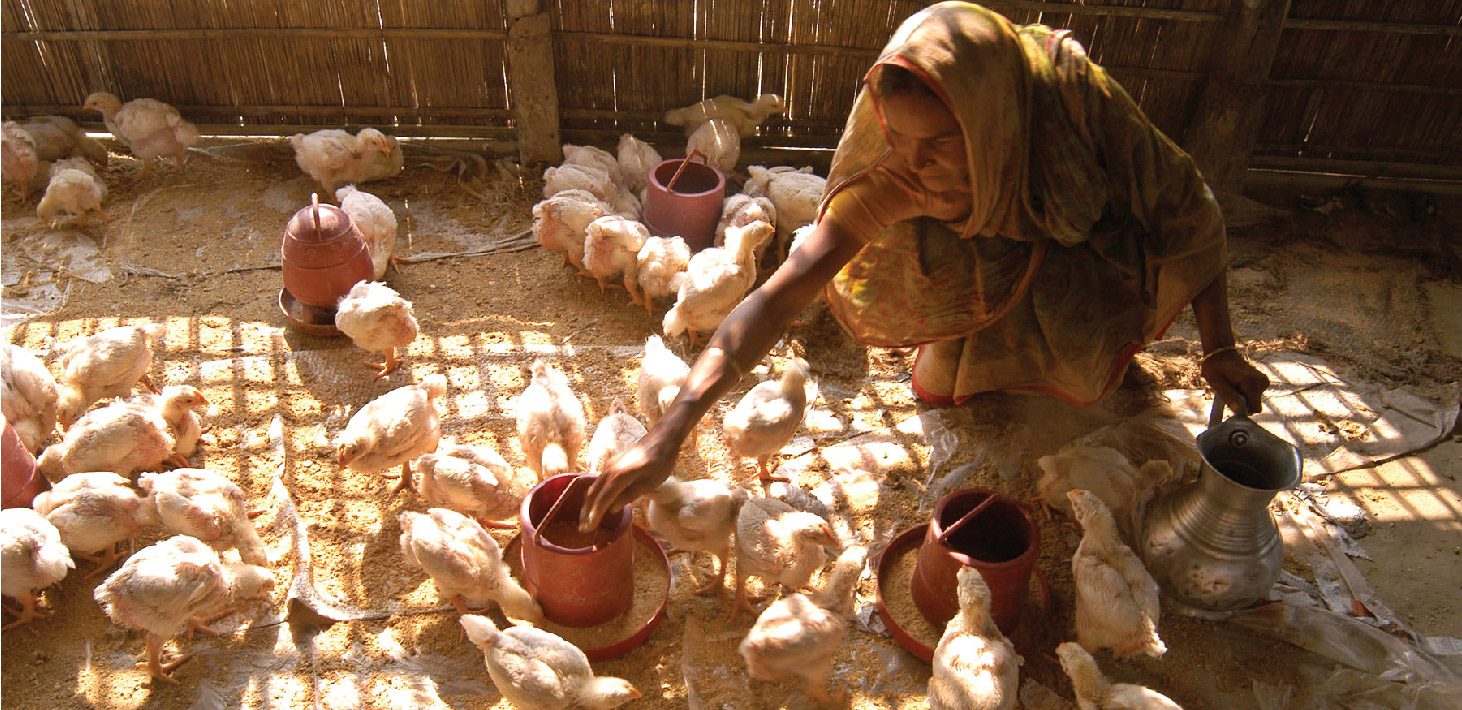According to the Organisation for Economic Co-operation and Development (OECD), if developed countries raised women employment rates to those of men they could increase their gross domestic product (GDP) by 12% by 2030
By Doulot Akter Mala
Photos by Din Muhammad Shibly
Two of Bangladesh’s three key sectors – garments, microcredit and remittances – have developed with the participation of women as workforce and as micro-entrepreneurs. Women are joining their own businesses apart from increasing employment in the corporate sector. Perhaps most importantly, some Bangladeshi women have established their positions in top political leadership – the Prime Minister, a former prime minister, the speaker of parliament and a few other key official portfolios. Still, the United Nations pointed out, women are in some cases facing repression due to inequality between men and women even though the global body lauded Bangladesh’s performance in women’s empowerment.
Bangladeshi women have also led the process of expansion in literary across the country by supporting their families and contributing to education programmes. In business, the women have made initial progress and received recognition from policymakers for accessing financing and regulatory support. But there are practical problems that constrained their journey forward and in a historically male-dominated society – anywhere in the world – it’s hard to bring a radical change in culture of accepting the women as prime actors in mainstream economic activities.
Wage discrimination is a critical issue that shows how the women are being undermined not only in Bangladesh but also elsewhere in the world. According to UNICEF, women do 66% of the world’s works, but they earn only 10% of the global income. Women make up 50% of the workforce, have higher education levels than men and are often the primary breadwinners in their families and yet they end up being underpaid and under-represented in the workplaces.
The progress report-2013 of the General Economics Division (GED) of the Planning Commission has pointed out some challenges with regard to reducing income inequality on attaining Millennium Development Goals (MDG) and expressed concerns about low economic participation of the women. The report said wage employment for women in Bangladesh is still low. Only one woman out of every five is engaged in wage employment in non-agricultural sector.
Some business houses prefer recruiting men than women in white-collar jobs, given the compulsion to provide six-month maternity leave to women. This provision made by the government has negative implications for women while securing a job although hardly anyone would acknowledge this. We as reporters have witnessed that some firms are avoiding recruitment from female candidates. The companies that have hired women as employees are found to be immensely benefitted – Women have proved themselves to be sincere and decent workers or officials that could ultimately contribute to bringing gender parity at workplaces and homes.
According to the Organisation for Economic Co-operation and Development (OECD), if developed countries raised women employment rates to those of men they could increase their gross domestic product (GDP) by 12% by 2030. Other studies, such as a recent report from McKinsey & Co., say having more women in the workplaces could lead to higher productivity and efficiency.
We have seen a wide gap between men and women in top policymaking administrative positions although the government is trying to bridge the gap. The proportion of seats held by women in parliament doubled from 10 per cent in 1990 to 20 per cent in 2011. In the administrative posts, secretaries account for 4.29% additional secretaries 5.06%, joint secretaries 11.61% and deputy secretaries 11%.
However, companies have better scope to accommodate women in key positions as well as in different levels since women are having similar qualifications, capabilities and education as their men colleagues. They (companies) just need to have a strategic framework for gender diversity, with goals, targets, sponsors, and support networks, and with clear leadership from the top. To ensure an enabling atmosphere for advancement of the women in the workplaces, companies could impart adequate leadership trainings. Bangladeshi companies may follow the examples set by the global corporate giants and how they framed their strategies for promoting women leadership.
In 2011, Walmart launched a three-part initiative that focused on training and increasing the number of women suppliers it uses. Mining group Rio Tinto has clear targets to have women represent at 20% of its senior management and 40% of graduates hired by 2015. Goldman Sachs launched the 10,000 Women initiative in 2008 to provide training and networks to women entrepreneurs in developing countries. Last year, Intel launched a technology programme that aims to train 5.0 million African women to use the Internet by 2016. As companies grow and become more powerful, they play vital roles in closing the gender gap.
Women should get a seat at the economic table of the companies, if they truly want to be competitive. When it comes to recruiting and promoting women talent, those in leadership positions need to keep a close eye on potential women leaders from all backgrounds. This doesn’t mean that companies have to promote female employees just because they’re women. Current leaders should be trained to “think outside the box” when searching for new talent from young pool of boys and girls. Companies need to create an atmosphere where women could believe they hold the leadership positions.
In Bangladesh, it is heartening to note, participation of women in corporate houses, the media and in the overall private sector is increasing day by day. At this stage of growing participation of women, they need a bit of policy support to survive and thrive in the jobs. Women are yet to find a balanced situation. There are platforms for protecting women rights in the country that need to be strengthened for employment empowerment of women.
Fazlul Hoque, a former president of Bangladesh Employers Federation, said employment situation for women has improved over the years due to gradual changes in the mindset of the society. ‘I have seen many of the highly educated women quit jobs in Bangladesh after getting married due to social reasons,’ he said adding that both the women and their family members have to change their mindset for serving an office or building a career apart from their responsibility of raising their families.















